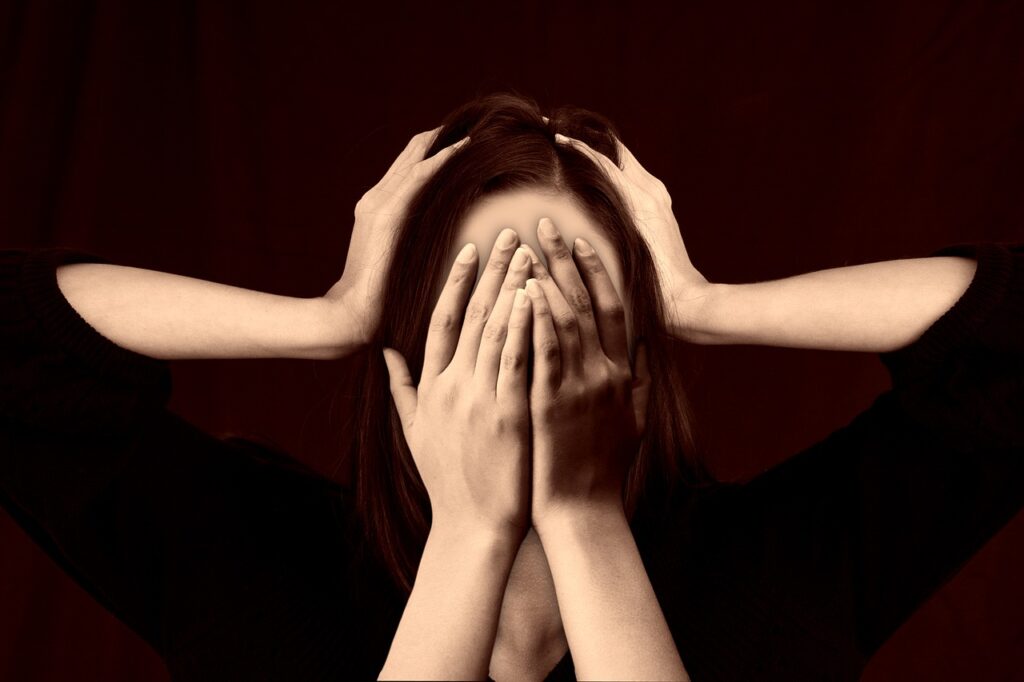Bipolar Disorder Explained

Bipolar disorder is a mental health condition characterized by extreme mood swings, or “episodes,” ranging from euphoria and manic energy to feelings of depression and despair. The condition is also known as manic-depressive disorder, and it can significantly impact a person’s ability to function in daily life. In this blog post, we’ll explore the symptoms of bipolar disorder, the causes of the condition, and the available treatment options.
Symptoms of Bipolar Disorder
Bipolar disorder is a spectrum disorder that can manifest in various ways and at different levels of severity. The primary symptom of bipolar disorder is a disruption in mood, including both manic and depressive episodes.
Manic episodes are characterized by the following:
- extreme happiness,
- elevated mood,
- increased energy, and
- reduced need for sleep.
People experiencing a manic episode may also have racing thoughts and feel very talkative. They may be easily distracted and engage in risky or impulsive behaviors. In some cases, manic episodes can lead to psychosis, a loss of contact with reality.
Depressive episodes, however, are characterized by the following:
- Sadness,
- Hopelessness, and
- A loss of interest in activities that were once enjoyed.
People experiencing a depressive episode may also have a reduced appetite and difficulty sleeping. They may feel guilty, worthless, or have thoughts of suicide.
It is important to note that not everyone with bipolar disorder will experience manic and depressive episodes, some will experience predominantly depressive episodes or hypomanic episodes, a milder form of a manic episode.
Causes of Bipolar Disorder
The exact cause of bipolar disorder is unknown, but researchers believe it is the result of a combination of
- Genetic,
- Biological, and
- Environmental factors.
Bipolar disorder tends to run in families, which suggests that genetic factors may play a role. Studies have shown that people with a family history of bipolar disorder are more likely to develop the condition themselves.
Biological factors may also contribute to the development of the bipolar disorder. Researchers believe that imbalances in certain chemicals in the brain, called neurotransmitters, may play a role. Additionally, people with bipolar disorder often have structural differences in some brain regions.
Stressful life events and other environmental factors can also trigger manic or depressive episodes. For instance, a significant life change like a job loss, relationship problems, or the death of a loved one can cause an episode.
Are There Different Types of Bipolar Disorder?
Yes, there are several different types of bipolar disorder. The three main types are:
Bipolar I disorder: This type of bipolar disorder is characterized by at least one manic episode, which may be preceded or followed by major depressive episodes. A manic episode is a period of elevated or irritable mood, increased energy and activity, and decreased need for sleep. Mania can also include symptoms such as inflated self-esteem, racing thoughts, distractibility, and impulsive or reckless behavior.
Bipolar II disorder: This type of bipolar disorder is characterized by at least one major depressive episode and at least one hypomanic episode, but no full manic episodes. Hypomania is a milder form of mania that does not cause significant impairment in social or occupational functioning.
Cyclothymic disorder (also called cyclothymia): This type of bipolar disorder is characterized by frequent episodes of hypomania and mild depression that do not meet the criteria for a major depressive episode.
There are also some variations or subtypes of bipolar disorder, such as rapid-cycling bipolar disorder, which is characterized by at least four episodes of mania, hypomania, or depression within a 12-month period, and bipolar disorder due to another medical condition, which is diagnosed when symptoms of mania or depression are directly caused by a general medical condition or substance use.
It’s important to note that the diagnosis of bipolar disorder is based on a comprehensive evaluation by a qualified mental health professional, which should include an assessment of symptoms, as well as a review of personal and family medical history.
Treatment of Bipolar Disorder
Bipolar disorder is a chronic condition that requires ongoing treatment and management. The most effective treatment for bipolar disorder includes a combination of medication and therapy.
Medication:
The most commonly prescribed medications for bipolar disorder are mood stabilizers. These drugs can help to level out mood swings and prevent manic and depressive episodes.
Examples of mood stabilizers include lithium, valproic acid, and carbamazepine. Antidepressants may also be prescribed to help alleviate symptoms of depression during a depressive episode, However, these drugs should only be taken under careful monitoring by a psychiatric professional as they can trigger a manic episode.
Psychotherapy:
- Therapy is an essential part of the treatment of a bipolar disorder. It can help people with the condition develop the skills and strategies they need to manage their symptoms and improve their overall quality of life.
- Cognitive-behavioral therapy (CBT) is a type of therapy that focuses on changing negative patterns of thought and behavior. It can help people with bipolar disorder learn to recognize early warning signs of an episode and develop coping strategies to prevent it.
- Interpersonal and social rhythm therapy (IPSRT) focuses on helping individuals establish and maintain stable daily routines, which can be particularly helpful in managing disorder symptoms.
- Family-focused therapy can also be beneficial as it helps family members understand and support their loved ones with bipolar disorder.
With proper support, bipolar disorder patients can live healthy and fulfilling lives.
Individuals with bipolar disorder must work closely with their mental health provider to create a treatment plan that works for them. Regular therapy, medication management, and self-care practices such as healthy eating, exercise, and adequate sleep can help improve the symptoms and overall quality of life.
It’s also essential for friends and family members of those with bipolar disorder to educate themselves about the condition and be supportive of their loved one’s treatment. Seek guidance and support for a family member as well, as it can help better understand the condition and handle the loved one’s fluctuations and mood swings.
Conclusion
Bipolar disorder is a complex and misunderstood mental health condition, but with proper treatment and support, people with bipolar disorder can lead healthy, fulfilling lives. If you or a loved one is struggling with bipolar disorder, it’s important to seek help from a qualified mental health professional.
Empire Psychiatry offers the best-in-class treatments, therapy, medication management, and specialized trained professionals to help individuals with bipolar disorder manage their symptoms and improve their quality of life.
Feel free to browse our website to learn more about our services. You may also get in touch with us by filling out the form on this page. Or, if you’d like to speak with an experienced psychiatrist right away, call us today at(516) 900-7646
We guarantee a response within 24 hours, and a confidential discussion of your symptoms and treatment options. Feel free to contact us at any time; we’re happy to help!

